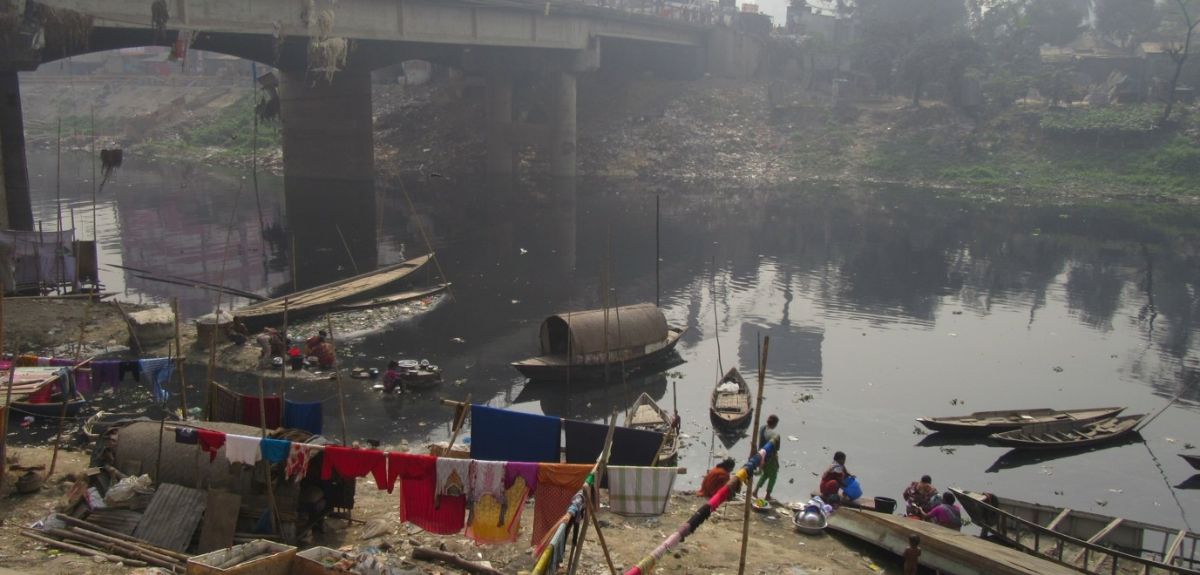
Action essential to protect water security from climate impacts – Oxford report
Urgent action is needed to protect global water security from the impacts of climate and climate change, according to a report today from Oxford’s REACH programme.
Emphasising the need for research and planning, while highlighting the unequal and complex impact of climate on water security, the report makes three key recommendations:
- More accurate and granular analysis of climate risks is needed to increase relevance of climate information.
- Metrics for monitoring climate resilience in water systems are critical to track progress and inform investments for water security.
- New institutional models that improve water security are critical for climate resilience.
Dr Katrina Charles, REACH co-director, says, ‘Climate change will increasingly affect water availability and quality, with devastating consequences for the most vulnerable. Improving water security is critical to build resilience to the changing climate.’
Climate change will increasingly affect water availability and quality, with devastating consequences for the most vulnerable. Improving water security is critical to build resilience to the changing climate
Dr Katrina Charles
According to the full report, ‘Improving water security is essential to achieve environmental protection, economic growth, poverty reduction, and improvements in public health. Water security is often presented as a technical challenge, but the decisions that define it are deeply political.
‘REACH recognises that the risks to people affected by poverty are often neither identified nor addressed. Improving water security requires managing complex and competing water-related risks in order to deliver sustainable and equitable outcomes for all.’
Working in Bangladesh, Kenya and Ethiopia, the REACH programme is led by the University of Oxford and funded by UK Aid Direct from the UK Foreign, Commonwealth & Development Office (FCDO). This report is based on six years of research developed in collaboration with research teams in these countries. UNICEF at the global, regional and country levels is a key partner supporting uptake of the research, in collaboration with national governments and their relevant ministries.
The report maintains, ‘Seasonal changes and extreme weather events have negative consequences for lives and livelihoods where water security is poor. Where populations are affected by extreme poverty and climate resilience is lacking, these impacts can be devastating.'
Seasonal changes and extreme weather events have negative consequences for lives and livelihoods where water security is poor
REACH report
According to the report, the programme’s research shows the unequal and, sometimes hidden, impact of climate change – which, the team says, can be counter-intuitive. The differing impacts across REACH’s country specific locations underpin the team’s call for further research and planning for climate and climate change.
The water insecurity of the urban poor is highlighted, with cities facing ongoing risks from pollution and urbanisation as well as increasing demand. Better management and planning is essential.
Meanwhile, the report reveals the devastating impact of climate on the lives of women, children and older people in rural settings. It calls for better analysis and communication of information – to help build better capacity, planning and resilience for potential changes in water quantity and quality.
Dr Charles maintains, ‘To build the adaptive capacity of water systems to cope with changes in climate, climate information needs to be available to water managers at the appropriate spatial and temporal scale....More investment is needed to provide the tools that water managers need to make informed decisions to increase climate resilience, such as accurate projections at local scales and seasonal forecasting based on understanding of local climate drivers.’
 What Louise Thompson’s campaign tells us about the national maternity crisis
What Louise Thompson’s campaign tells us about the national maternity crisis Celebrating 25 Years of Clarendon
Celebrating 25 Years of Clarendon  Learning for peace: global governance education at Oxford
Learning for peace: global governance education at Oxford  What US intervention could mean for displaced Venezuelans
What US intervention could mean for displaced Venezuelans  10 years on: The Oxford learning centre making an impact
10 years on: The Oxford learning centre making an impact Oxford and The Brilliant Club: inspiring the next generation of scholars
Oxford and The Brilliant Club: inspiring the next generation of scholars New course launched for the next generation of creative translators
New course launched for the next generation of creative translators The art of translation – raising the profile of languages in schools
The art of translation – raising the profile of languages in schools